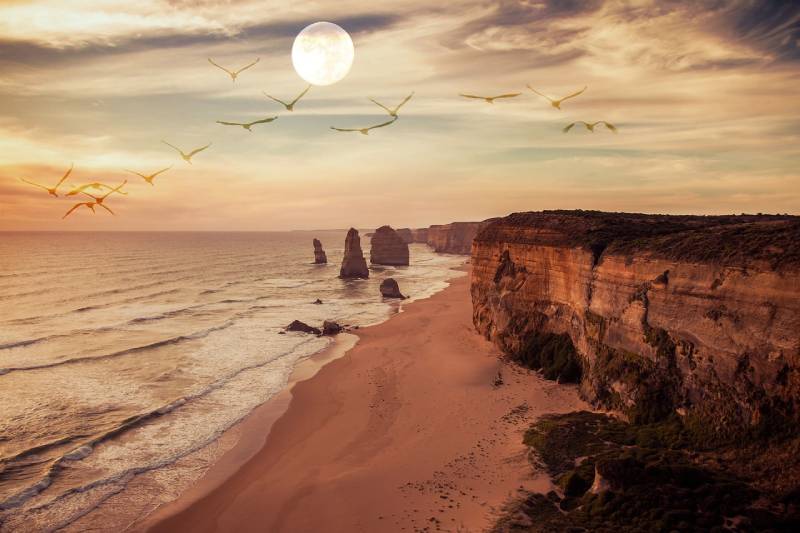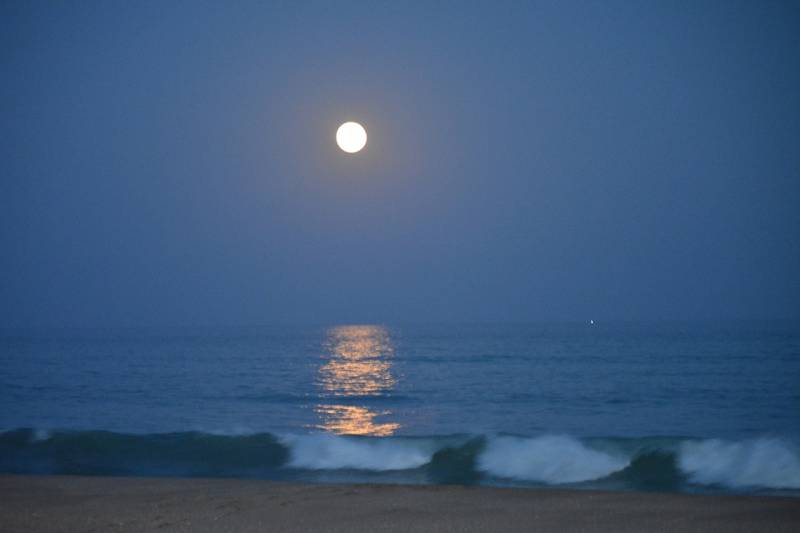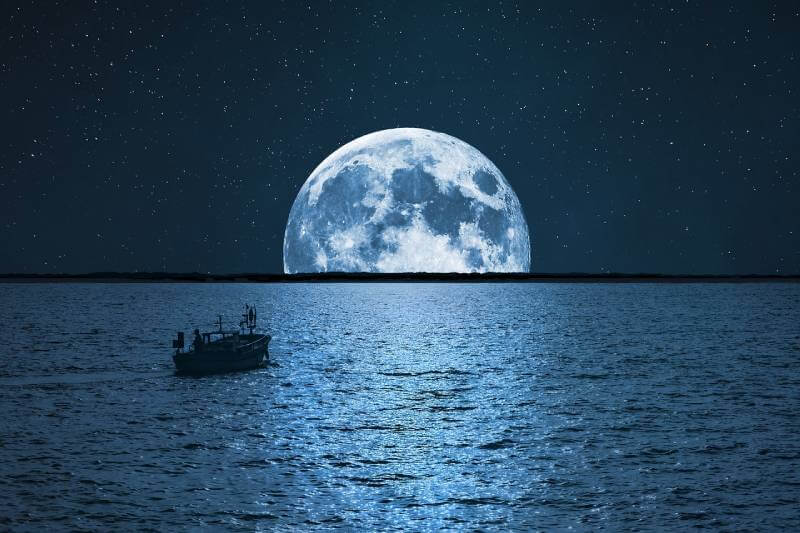It’s not uncommon to hear jokes about how the full moon causes people on Earth to act erratically or strangely. Throughout history, the moon has been accredited or blamed for the happenings on Earth. From fertility to the strange behaviors of people and animals, the moon has been accused of controlling multiple aspects of our ways of life. While we can’t know for sure whether the moon controls these things, one thing we do know for certain is that the grand celestial body controls our oceans.
What Does The Moon Control?
Cultures around the world worship the moon or a moon deity. Mythology has depicted the moon as a serene feminine energy with powers over the tides and stars. In modern days, the power of the moon has been debunked, leaving very few things to be scientifically true.

The moon controls three main things: light, time, and tides. The moon is especially important to animals, like birds, because it is essential to their migration and travel. The lunar clock affects humans on a broad scale. Circadian Rhythms refer to the day and night cycle driven by our planet orbiting the sun. Our circadian rhythms are very easily thrown off course by the changing of clocks, jet lag, or the lunar cycle.
The number one thing the moon affects, and perhaps the most dangerous of them all, is the ocean tides. Tides are the change in the ocean’s water levels. Typically, the tides reach a high and a low twice a day, roughly six hours apart. The change from low tide to high tide is called the flood tide or flow. High tides can be extremely dangerous due to the sudden rise in the water level. It can easily reach the beach or even further, engulfing the area with rough waves.
But how can something so beautiful control something so dangerous?
How Does The Moon Affect Tides?
The combination of Earth’s gravity and the gravitational pull of the moon creates a phenomenon referred to as tidal force. The tidal force is what causes our ocean tides to change from high to low or low to high.

The short and plain answer to how the moon does this is gravity.
To further explain ourselves, we have to start with the basics. As you may already know, gravity is the invisible force that pulls objects together and is the reason why Earth and the other planets stay relatively in the same spot. Anything that has mass, like an apple, is affected by gravity. The moon’s mass is 80 times smaller than Earth’s, but regardless of its size, the moon still exerts gravitational pull. As Earth rotates, the areas closest to the moon experience that pull.
This may pose another question for you: If we only rotate past the moon once a day, then how do we have two high tides and two low tides a day? The plain and simple answer is tidal force.
Tidal force, in all actuality, is the moon’s average gravitation pull over the entire Earth subtracted from the moon’s pull in a specific location. The moon’s gravity actually affects the entire Earth, not just the area that’s currently the closest. During the day, while the moon visits the opposite side of the Earth, humans experience high tide because we are at the moon’s weakest gravity point. High tide comes because the rest of the Earth is being pulled towards the moon.
Does The Full Moon Affect The Oceans Differently?
Yes, a full moon affects the oceans differently than it normally does. And so do new moons! Tidal force explains the extra shift we see during both the full and new moons, but this time, the sun has an extra hand in it as well. The sun also has gravity, and its force is what keeps the other planets, Earth included, from frolicking through the galaxy.
During full and new moons, when the Earth, moon, and sun all line up, the gravitational powers cause more extreme tides to occur. These tides are called “spring tides.” During the 1st and 3rd quarter moons, we see smaller tides called “neap tides.”
Conclusion
The jury is still out on whether or not the moon controls humans’ emotions and actions, but science has shown us that the moon and our oceans have a rather complicated relationship. The moon affects our oceans more than we seem to realize sometimes, and who knows, maybe the moon affects us, too.

